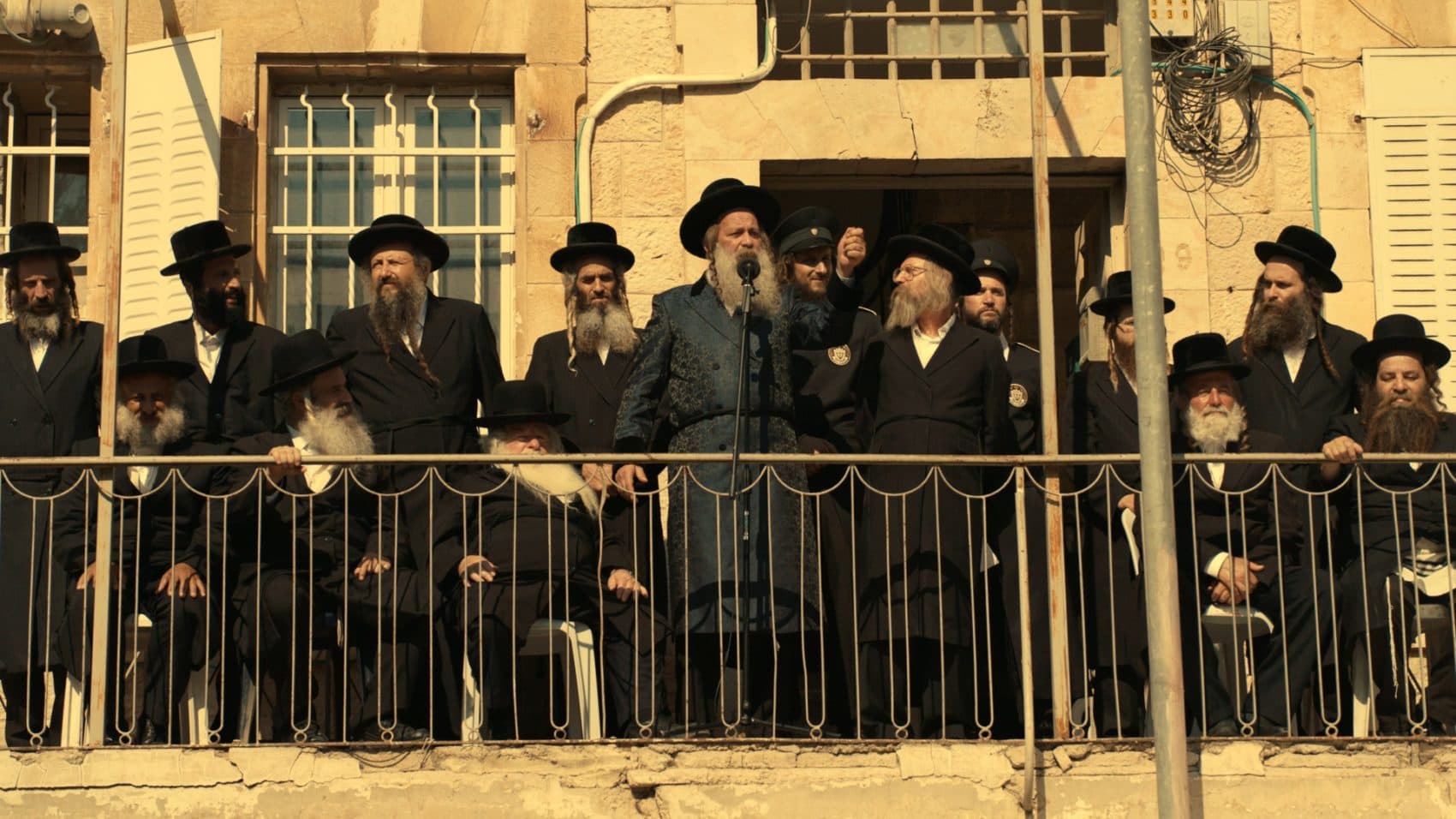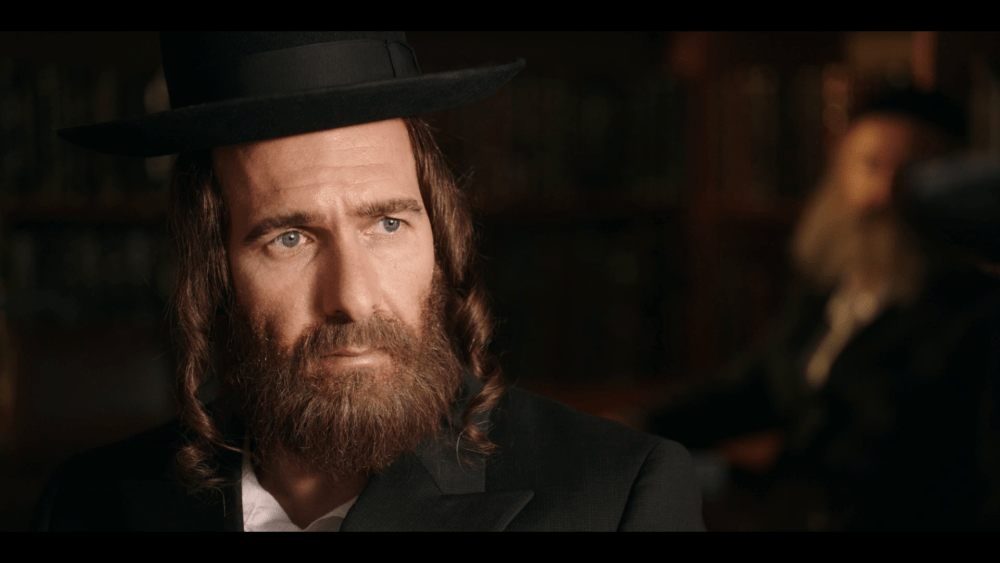Advertisement
Here Are 2 Reasons To Indulge On Israeli TV At The Boston Jewish Film Fest

Whether by choice or necessity, independent film festivals have had to start dealing with so-called “peak TV.” But the very reason we watch TV in leisurely spurts or decadent binges presents a formal challenge to festivals. Which season, which episodes, and how many to show?
The Boston Jewish Film Festival (BJFF) is one of the few Boston area festivals to embrace the TV trend and our shifting media habits. For the second year in a row, BJFF will host 308-minutes of a “TLV TV Binge” including two shows: "Autonomies" (in entirety) and "Muna" (the first three episodes). Neither are available outside the film festival circuit with English subtitles. Both merit a respectable set of pajamas and a big chunk of a Sunday. (The festival runs Nov. 7 to 17 and these two shows start at 11:30 a.m. and 4 p.m. on Sunday, Nov. 17 at the Brattle Theatre.)
Israeli TV is worth paying attention to, explains BJFF artistic director Ariana Cohen-Halberstam, because it "sets the stage" for what's going to be popular on American screens. Shows like HBO's “Euphoria” and “In Treatment” or Showtime’s “Homeland” are adaptations of Israeli series. In 2016, BJFF screened “Shtisel,” a fictional family drama set in an ultra-orthodox neighborhood in Jerusalem, years before it became a Netflix hit. The creators of "Shtisel" are also behind the new limited series "Autonomies," which opens with a collision of cultures. An orthodox theocracy, or Haredi autonomy, has formed in Jerusalem's dystopic future. A melancholic, petty smuggler Yana Broide (Assi Cohen) develops a quick rapport with a bereft young saxophonist Anna (Daniella Kertesz). Their star-crossed relationship becomes increasingly entangled as the series progresses, serving as a background metaphor to a custody battle over a child born to orthodox parents but raised in secular Tel Aviv.
In the first hour plus, these conflicting worlds are painted with exaggerated strokes. The secular world has whitewashed walls and shiny kitchens spiked with green houseplants. A scene with the well-heeled family of the child in question looks like a cereal ad pulled from a glossy magazine. Meanwhile the sepia-drenched orthodox world looks as if built for theater, where a too-bright key light shines over the Rebbe of Kreinitz’s desk. This is of course where power lies, where decisions are made. If the secular world has sold out, the ultra-orthodox world embraces melodrama over grace.
This dichotomy may challenge those seeking nuance, or a clear hero (or could be some rollicking fun if you can let it just roll). Broide is patronizing and morally suspect whereas Anna is suggestable and passive (and to the dismay of feminist viewers, her agency seconds his). Yet the divisions blur as the twisting plot wears Broide down and reveals him to be a man who struggles to hear and heed what God has to say.

“Autonomies” grew on me over time but I didn’t fully buy the set-up. Ultimately I wanted to feel more of the characters’ extreme emotions with them. Yes, it’s heartbreaking to watch two mothers brawl and come together over their shared love for a child. But it would be more heartbreaking to understand their lives and motivations outside of that situation alone. Even still it gives a snapshot into worlds I haven’t — or maybe can’t — imagine, and that’s always worth exploring.
Insider-outsider status also underpins the second TV series screening at BJFF this year. Set in contemporary Tel Aviv with an upbeat tone, the charismatic dramedy “Muna” compactly lays out what’s to come in its pilot episode. The Arab-Israeli title character (Mouna Hawa) has been invited to represent Israel in an international photography exhibition and at least two men are in love with her. Muna gets heat from all sides — for being not Arab enough, being too Palestinian to represent Israel, being too immersed in her art to keep her business afloat. It’s hard to sustain the intensity of interpersonal and political drama over time and of the two, “Autonomies” grows and “Muna” dwindles. Even still, it’s refreshing to watch Muna imperfectly navigate her sudden rise to infamy.
Roiling just under the surface of the comings and goings of these young creatives is the 2014 Gaza war. That element potentially sets this series apart from its American counterparts, if there are any (“Girls,” “Insecure” and “Younger” come to mind). But in “Muna” the stakes seem so much higher.
Cohen-Halberstam agrees but only to a point. “Yes, rockets are landing but they’re also going to parties,” she says. For her that’s why recent Israeli history is important to see on film or through TV. “As much as our lives are alike, they’re different,” she says. It may sound like circular logic but she thinks the overlap of universality and cultural particularity helps explain why American producers are so eager to pick up Israeli shows.

When Muna returns to her village to visit her parents, her brother warns her, “Try to be more not like yourself. Try to be more like mom.” Her political father disowns her. Antics ensue in a way that feels a bit (soap) operatic. Yet an authenticity rings through the episodes, with especially smart dialogue. “Muna” is definitely worth a 99-minute binge, even worth waiting for a stateside arrival, hopefully in its original form. As an added bonus, the festival welcomes series creator Mira Awad (“Arab Labor”) after for Q&A.
According to Cohen-Halberstam, there's already interest in adapting these and several other Israeli shows for American audiences right now. "Could they work here? I don’t know.” But right now, she doesn’t have to know. Because this year BJFF has smartly rolled the dice on TLV TV, worthy entertainment as-is.
